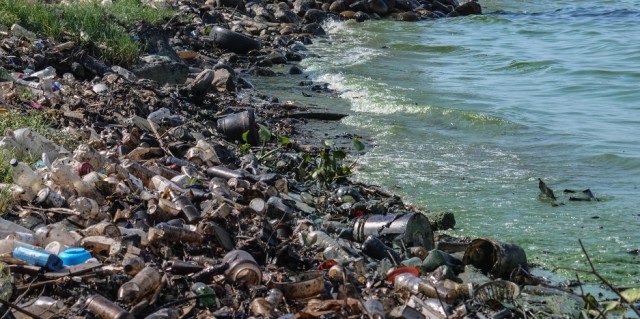
Advertisement
The world is awash in plastics, and that includes the oceans. What’s more, this non-biodegradable substance is becoming more than just a nuisance, it’s beginning to threaten ecosystems – the very chains of life – everywhere.
As noted in the journal Science recently, there has been a constant barrage of plastics being dumped into oceans in an amount that is now seriously beginning to threaten marine life, which can either get tangled up in plastic debris or can ingest it, leading to contamination and/or death. Sometimes plastics have been broken down by the seawater and appear as tiny particles that mimic other foods.
Plastics make it into our oceans not only when careless, thoughtless people toss it in, but also from land. In fact, some 80 percent of all plastic waste that makes it into oceans around the world have been swept in from coastlines or carried through rivers from streets during heavy rain storms and sewer overflows.
Fortunately there is something we can do to mitigate the damage. Here are five things:
Wean, wean, wean: The fact is we don’t need to use as much plastic as we do. In fact, as noted by the National Resources Defense Council, as much as 90 percent of the plastic items in our daily lives are used just once and then are thrown away: Plastic wrap, those ubiquitous grocery bags, disposable eating utensils, straws, coffee cup lids, outer plastic product wrappings and so forth.
What if you paid closer attention to how often you used or relied on these products? For instance, couldn’t you buy some reusable plastic containers to store leftovers in rather than just covering them with plastic wrap? How about going to the grocery store with reusable eco-friendly grocery bags?

It only takes a few times doing these things before your habits will be forever changed. It’s just unlearning previously learned behavior and reprogramming yourself to be a better steward of the earth. [Hint: Travel coffee mug for your Starbucks?]
Quit buying water: One of the most commonly discarded plastic items are water bottles – the kind you buy in stores containing “pure” water that may or may not actually be so pure. These are tossed everywhere (and if you’ve ever traveled to the U.S.-Mexico border in parts of Texas and Arizona, plastic bottles by the millions dot the landscape).
How about purchasing a water filtration system for your tap water? You’ll wind up with less plastic waste and water that you know is purer than straight tap water. Get yourself a reusable mug/jug for your water.
Cook some more: No, really. This isn’t a push to get you to eat healthier (though home-cooked meals generally are healthier). Making your own healthy meals does not involve takeout containers, doggy bags or opening prepackaged food and stuffing it into the microwave (those prepackaged foods usually involve some plastic).
For when you do eat out let the restaurant establishment know that you don’t need plastic forks and knives. Also, if you are really into this “cut down on plastic” drive, bring your own food storage containers for leftovers.
Try recycling: Yes, it seems rather obvious, but in truth as a society we can certainly improve on it. For example, the NRDC reports that less than 14 percent of plastic packaging is actually recycled.
If you’re confused about what you can and can’t put into recycle bins, don’t worry: Your local recycling center will be able to educate you. Also, if you happen to live in a community that encourages (or requires) recycling, your waste disposal service has all the details about what you should and shouldn’t place in your recycling containers.
Support bag bans: Or plastic bag taxes. You can do this by urging local elected officials to follow the lead of city elders in San Francisco, Chicago and about 150 other cities around the country by asking them to introduce and support legislative measures that make use of plastic bags less economical and desirable.
Sources:
Submit a correction >>
Advertisement
Advertisements















